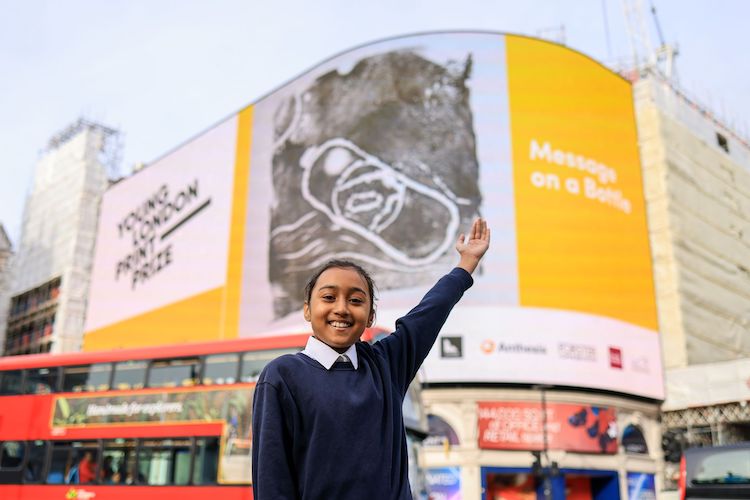Reaction to the recent review of the government’s approach to Net Zero has been weird. Most people are so relieved it doesn’t take a climate sceptic stance that they have welcomed its framing of the issue within a wider economic growth agenda. But the review also positions tackling climate change as purely a matter for science – a challenge to be addressed by the professionals through smart regulation, clever inventions and private investment. In doing so it fails to understand the cultural dimensions of environmental breakdown.
At its heart, climate change is a culture issue – a product of our values and choices as individuals. Yet when you deploy “Control + F” to search the 300-page Net Zero review document for “culture” or “creativity” or “art” you find that none of them appear even once. This matters because it betrays a misunderstanding of how, throughout history, social change has come about through the interplay of culture, creativity and technological innovation. Our problem at the moment is that there’s too much emphasis on tech and not half enough on dialogue and mobilisation. Both matter in a climate emergency, but only one is really happening.
I’m seeking to advance this argument through my work in London’s art and creative sector and with the help of an essay called Ecological Renaissance, in which I explore the drivers of social change in late medieval Europe, Harlem in the 1920s and the Queer Renaissance of the 2010s, and tell the stories of three present-day London climate related projects using art and culture to change this city from the ground-up today:
- A nature walk for Queer, Trans, Black, Indigenous, People of Colour (QTBIPOC) communities organised by the Misery mental health collective that started in Brent last summer and has since been repeated in Southwark and on Hampstead Heath.
- The Young London Print Prize which works with schools in low income neighbourhoods from Thamesmead to Poplar, inspiring creativity and climate art. (The winner, Sara Ahmed, is pictured above).
- Breathe 2022, a public art project commissioned by Deptford’s Albany Theatre as party of Lewisham’s London Borough of Culture year which has seen works by six local artists pasted across the borough.
I think these initiatives are of huge relevance to London – including every business and borough grappling with a New Zero Pathway. You might be confident of nailing Scope 1 and 2 (your direct greenhouse gas emissions and those produced indirectly through the energy you purchase). But for most organisations, Scope 3 (all the other emissions that come from your value chain or occur indirectly as a result of the council’s activity) is almost entirely dependent on offsetting and a recent Bloomberg NEF report suggests these prices could increase a whopping fifty-fold by 2050.
Art and culture offer a way to influence the choices of all the people you don’t control be they your customers and supply chain or local residents and all other fellow citizens. It is a vehicle for persuading people to come on the journey. It is how you get them thinking and sustain their interest. It’s an essential tool with which to mobilise people in this city to act consensually and sustainably.
So my question is, where is cultural programming and creative partnerships in climate strategies we have so far? Is it embedded in the process of climate action from the outset – in ideation, procurement, delivery and evaluation – or limited to the marginal bit an artist might be thought useful for?
We need to reappraise the role of artists themselves. Instead of placing them in a box marked leisure and entertainment, we should see them partly as service providers. If they exist in a box at all, it’s marked invention, facilitation and communication. The truth is art and culture can help solve some of our most pressing business problems, including net zero. It isn’t just about objects and sculptures or museums and galleries. And while local government and the private sector are only too familiar with commissioning think tanks or consultants, they think it risky or luxurious to work with artists or creatives.
At the same time, cultural practitioners should embrace the idea of working intimately with private business and – if they choose – to pitch their work confidently as an instrumental tool to help solve immediate real world problems.
We need a broker or an agency like an old-fashioned record label A&R department that used to sit between the artist and recording company to match all the talent and capability in the creative industries with the sustainability teams that now exist throughout the public and the private sector.
The Net Zero Review shows that the culture sector has to get its elbows out and demand a place round the climate crisis table. It bothers me that no major arts organisation appears to have published any kind of response to the document. Where are you Tate, the National, the Royal Academy and all the rest?
Art and culture are fundamental to sustainability and have to play a much bigger role in every net zero strategy if we want the public to buy in to them and change so many aspects of the way we live in this and every other city.
Ecological Renaissance is published by Woolwich Contemporary Print Fair and produced in partnership with Landsec, Peabody, Anthesis, Boodle Hatfield and the Foundation for Future London. Download it here. Follow Matt Bell on Twitter.
On London strives to provide more of the kind of journalism the capital city needs. Become a supporter for just £5 a month. You will even get things for your money. Details here.

